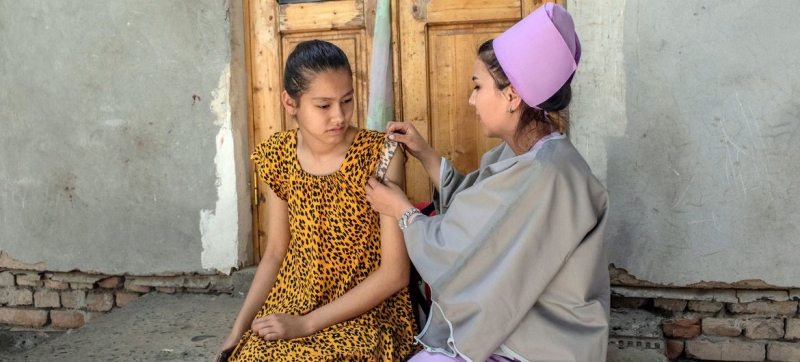
WHO recommends vaccinating all girls aged 9 to 14 against HPV. Pictured: vaccination in Uzbekistan. WHO: Cervical cancer can be effectively prevented, treated and completely eliminated Healthcare
Cervical cancer is the fourth most common type of cancer among women. According to the latest data, in 2020, 604 thousand new cases of the disease were registered worldwide, 342 thousand women died. January is Cervical Cancer Awareness Month.
Almost all cases of the disease (99 percent) are associated with infection with the human papillomavirus (HPV), an extremely common sexually transmitted virus.
Although most such infections go away on their own and cause no symptoms, long-term infection can lead to cancer.
According to the WHO, cervical cancer is most common among women who do not have access to health services, mainly in low- and middle-income countries. The highest incidence and mortality rates are observed in sub-Saharan Africa, Central America and Southeast Asia.
Women with HIV are six times more likely to develop cervical cancer than women without HIV.
Symptoms
As emphasized by the World Health Organization (WHO), it is extremely important to recognize the symptoms of this disease in time.
These include unusual bleeding between periods, after menopause or after intercourse, heavy vaginal discharge, vaginal discomfort, back, leg or pelvic pain, weight loss, loss of appetite, fatigue, swelling of the legs.
Women with such symptoms should immediately consult a doctor.
Prevention, treatment and complete elimination
WHO experts note that HPV vaccination and preventive measures such as regular examinations starting at age 30 (from age 25 for women with HIV infection) and treatment of precancerous lesions can prevent most cases of cervical cancer.
As of 2023, there are six HPV vaccines available worldwide. All of them effectively protect against the most dangerous types of the virus. One of the priorities is to vaccinate all girls aged 9-14 years before they become sexually active. For optimal protection, immunocompromised individuals should receive two or three doses of the vaccine.
Some countries also vaccinate boys to further reduce the prevalence of HPV in the population and prevent HPV-related cancers in men.
WHO also recommends male circumcision, not starting or quitting smoking, and using condoms.
Once diagnosed, cervical cancer is one of the most curable forms of cancer if it is detected early and treated effectively. With a comprehensive approach to prevention, screening, and treatment, cervical cancer can be eliminated within a generation.
